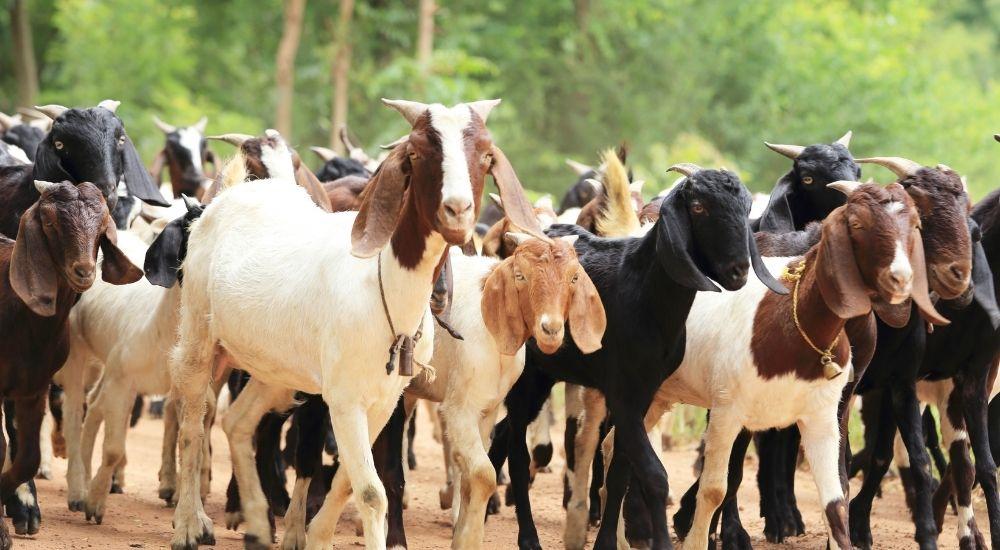
With the demand for meat increasing amongst a growing concern for global warming, it's important that we collectively work together to save the World. ILM UK is committed to working with local farmers to protect the environment and promote sustainability in agriculture and livestock.
Give your Qurbani today and limit the environmental impact
The demand for meat is increasing
Demand for more meat is having an impact on the environment like never before. According to Statista, there has been year-on-year growth in the demand for all types of meat-based on statistics dating back to 1990. There is a direct correlation between higher wages and eating meat. As people become wealthier, the demand for meat grows.
There are other factors such as demand for poultry - mainly chicken. Chicken is relatively cheap, easy to farm, and easy to cook, and parts of the chicken are high in protein. This has had an appeal to a more fitness-conscious society wishing to improve health and wellbeing. Expensive cuts of steak have now become more affordable and can be consumed regularly. Going out for a meal has become common amongst the general population throughout the World, all desiring new flavours and experiences.
What has meat got to do with the environment?
The demand for meat has its consequences. Some of the consequences that this demand has resulted in include:
What is ILM UK doing to make farming more sustainable?
With Eid-Ul-Adha nearly here, millions will be carrying out their Qurbani around the World. ILM UK is actively involved in several projects with the aim to develop an ethical and eco-focused approach to farming. These projects will contribute toward reducing our carbon footprint and include:
Educating local farmers to help raise awareness
ILM UK is increasing engagement with local farmers and livestock producers to inform and educate them about the implementation and effects of introducing sustainability into their traditional farming methods. This in turn has a positive and long-lasting effect on working towards an eco-friendlier and cleaner World.
Using resources provided by the Food and Agriculture Organisation (FAO) of the United Nations and the agricultural European Innovation Partnership, funded by the European Commission, our Qurbani meat providers will learn about the topics below, as well as practical farming tips and techniques. These include:
There are numerous reasons to give your Qurbani ethically through ILM. Give your Qurbani today and limit the environmental impact.